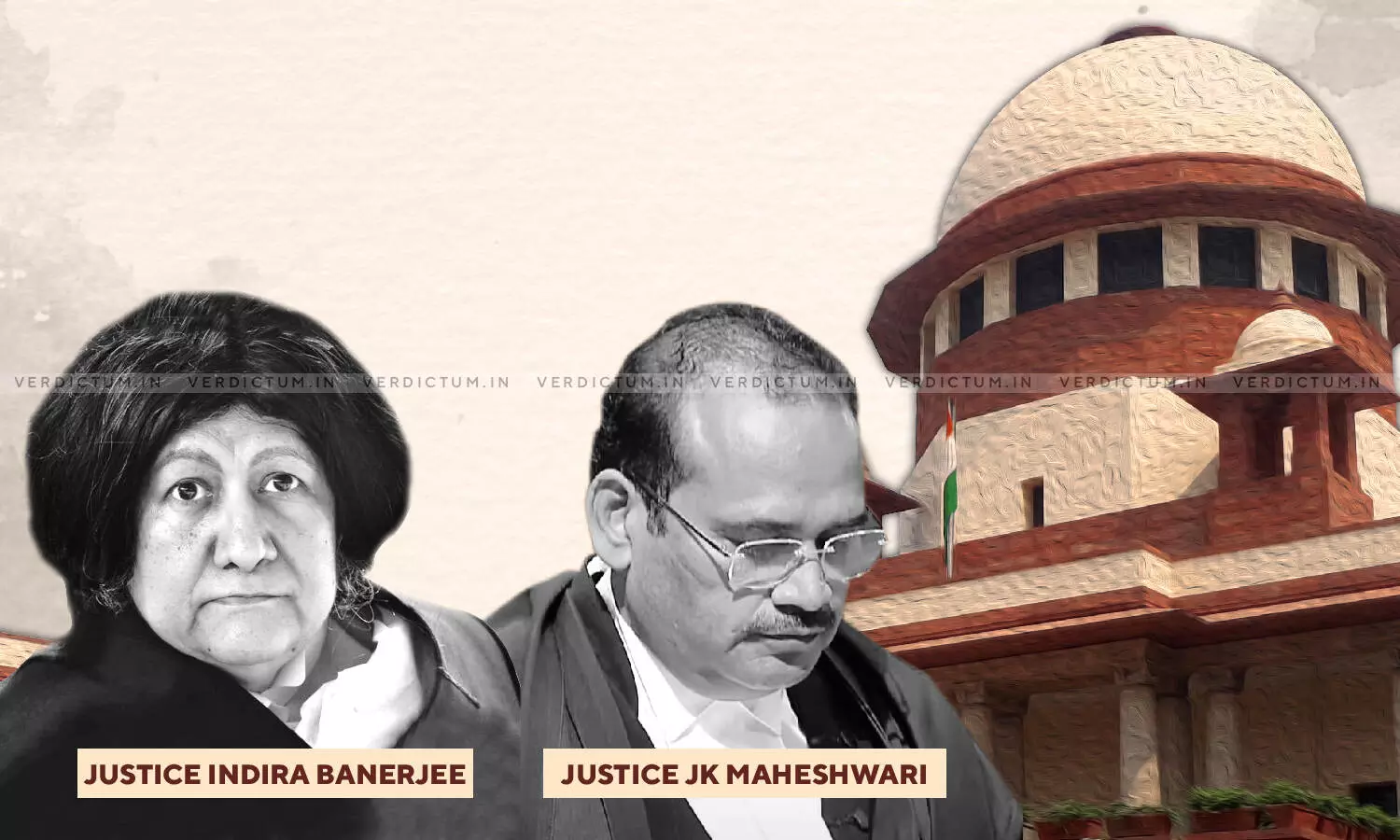
Detention Order Passed By Executive Magistrate Valid U/s. 122 CrPC Upon Breach Of Bond Executed For Good Behavior – Supreme Court
 |
|A two-judge Bench of Justice Indira Banerjee and Justice JK Maheshwari has held that the detention order passed by the Executive Magistrate in exercise of its powers under Section 122 CrPC is valid upon breach of a bond executed by a person to maintain good behavior and peace.
Counsel Mr. A. Lakshminarayanan appeared for the Appellant while Counsel Dr. Joseph Aristotle S. appeared for the Respondents before the Court.
An appeal was preferred before the Apex Court assailing the judgment of the Madras High Court which had confirmed the order passed by Respondent No. 1.
In this case, Respondent No. 1 and the High Court had found the Appellant guilty for breach of the conditions of bond and punished him under Section 122(1)(b) CrPC. The impugned orders indicated that the Appellant was also indulged in criminal activities. After providing him a reasonable opportunity, Respondent No. 1 passed an order under Section 117 read with Section 110(e) CrPC.
In compliance, the Appellant executed a bond to maintain good behavior and peace for a period of one year and also undertook to pay Rs. 50,000/ as a penalty to the Government in case of breach or else face the proceedings under Section 122(1)(b) CrPC. Thereafter, it was found that the Appellant had committed a murder.
Respondent No. 1 found him guilty for breach of bond, which led to his arrest and sent him to custody. This order was subsequently, affirmed by the High Court.
Aggrieved, the Appellant challenged both the orders before the Supreme Court.
The Apex Court noted that from 2012 to January 2021, the Appellant was involved in eight criminal cases including simple and grievous hurt, theft, and also under the Arms Act.
The Court further noted that Respondent No. 1 had recorded that the Appellant might cause a breach of peace in the locality and was directed to furnish a bond to the sum of Rs. 50,000 without a surety for a period of one year under Section 117 CrPC failing which he may serve the imprisonment under Section 122(1)(a) Cr. P.C. or in case of breach of conditions, the recourse of Section 122(1)(b) Cr.P.C. may be taken.
Also, the Bench opined that Chapter VIII of CrPC confers powers to the Executive Magistrate to take bond for maintaining security and for keeping peace and good behavior of the citizens.
The Court in this context held –
"As per Section 107 Cr.P.C, on receiving the information, that any person is likely to commit a breach of peace or disturb the public tranquility or to do any wrongful act, the Executive Magistrate may have power to show cause on violation of the terms of the bond so executed for maintaining peace."
Additionally, the Bench held, "As per Section 108 of Cr.P.C., similar power has been given for maintaining the security for good behaviour from persons disseminating seditious matters. Similarly, to take security for good behaviour from suspected persons and habitual offenders, powers under Sections 109 and 110 Cr.P.C. have been conferred upon the Executive Magistrate."
The Court also noted that the order was passed under Sections 111 and 117 CrPC for security and on violation recourse, under Section 122 CrPC is permissible.
"It is a trite law that by following the procedure established by law, the personal liberty of the citizens can be dealt with", the Court held.
The Bench held that the order passed by Respondent No. 1 was after following due procedure and affording an opportunity to the Appellant. The High Court had rightly affirmed the said order.
Accordingly, the Court held that the orders passed by the High Court and Respondent No. 1 did not call for interference and dismissed the appeal.
Click here to read/download the Judgment